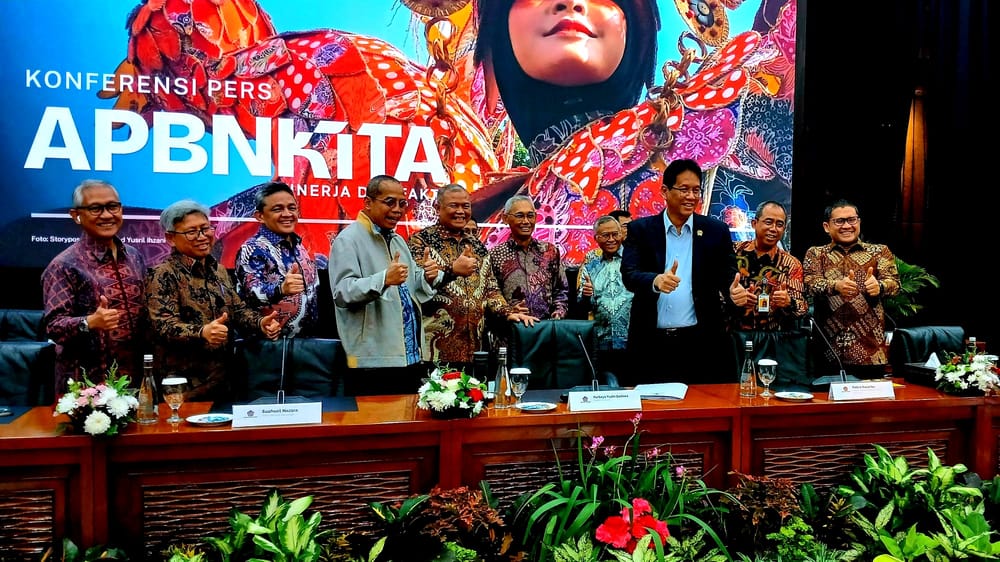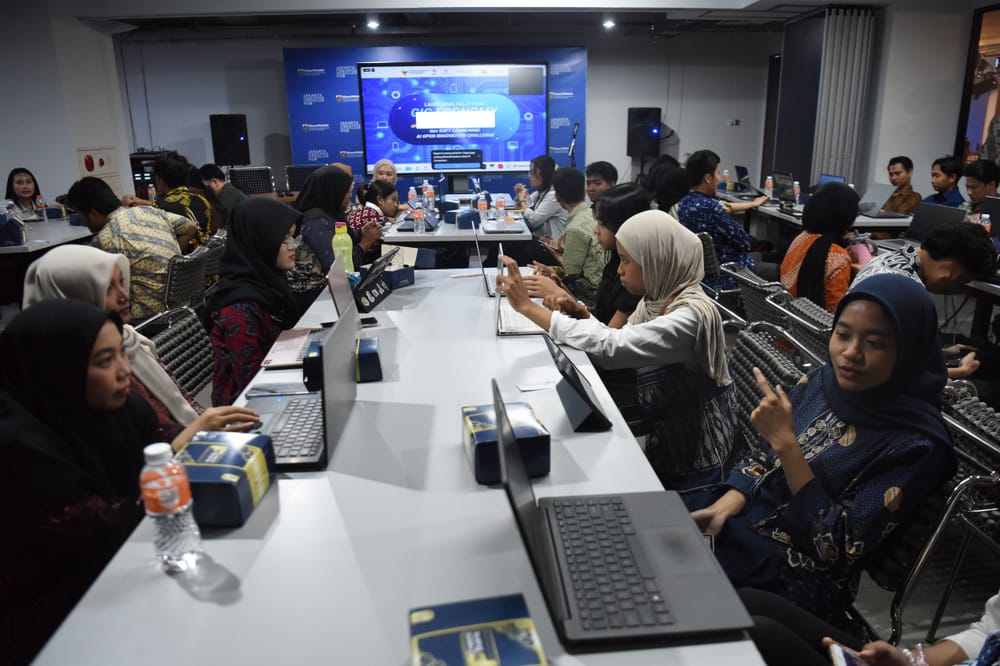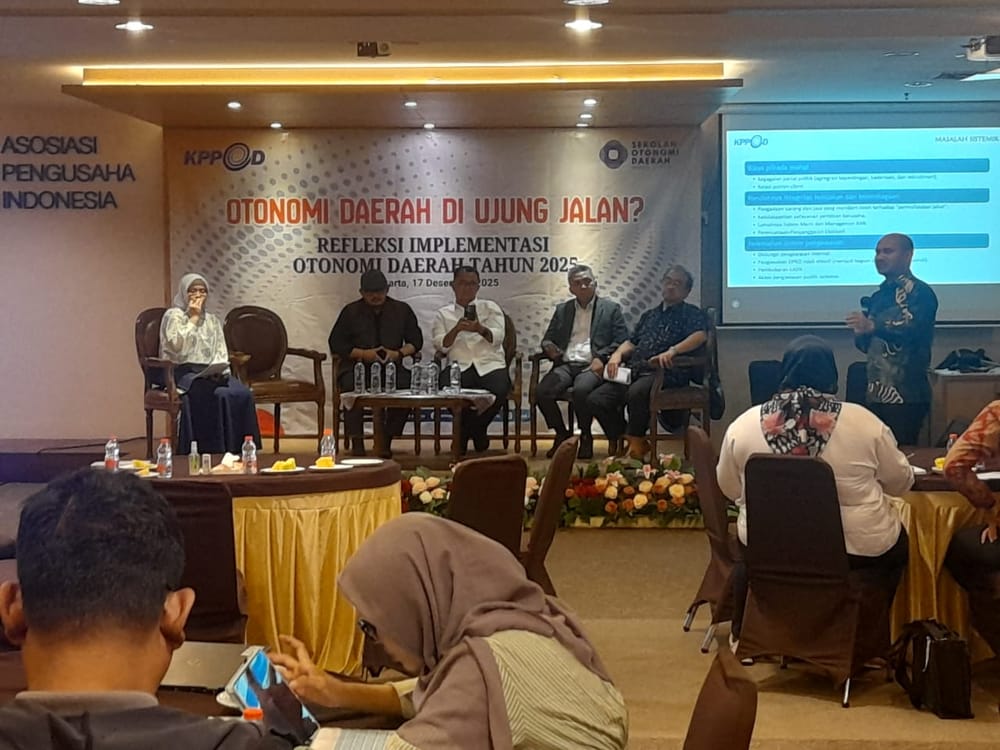After lowering the benchmark interest rate by 150 basis points (bps) between September 2024 and September 2025, Bank Indonesia (BI) maintained the BI Rate at 4.75% at BI's October 2025 Board of Governors Meeting (RDG). The deposit facility rate also remained at 3.75%, and the lending facility rate remained at 5.5%.
With an unchanged value, BI encourages banks to accelerate the reduction of lending rates and take advantage of the existing monetary policy leeway. Two attractive incentives have been prepared by BI for banks that are committed to meeting these demands.
The announcement was made during BI's October 2025 RDG press conference held online, Wednesday (22/10/2025).
"This decision is consistent with the forecast for inflation in 2025 and 2026 which is maintained low within the target of 2.5±1%, efforts to maintain the stability of the Rupiah exchange rate in accordance with fundamentals amid high global uncertainty, and synergies to help strengthen economic growth," said BI Governor Perry Warjiyo.
In addition to announcing the results of the monthly meeting, the October RDG also presented the BI Board of Governors' notes on monetary policy for one year, as well as a grid of monetary policies to be pursued in 2026.
Perry stated that in the midst of a slowing and uncertain world economy due to the imposition of tariffs and fluctuations in capital flows to emerging markets, Indonesia's economic performance remained good and the current account recorded a surplus in Indonesia's Trade Balance.
Currently, with foreign exchange reserves remaining strong at USD 148.7 billion, the rupiah exchange rate recorded at IDR 16,585 per US Dollar, and Consumer Price Index inflation recorded at 2.65% YoY, BI is taking stabilization measures through interventions in financial markets as well as buying Government Securities in a measured manner.
"Going forward, the Rupiah exchange rate is predicted to remain stable, supported by Bank Indonesia's commitment to maintain Rupiah exchange rate stability, attractive yields, low inflation, and Indonesia's favorable economic growth prospects," Perry said.
Capitalize on momentum
In particular, Perry underlined that currently, BI is maximizing the momentum to pursue loose monetary policy with monetary liquidity expansion and macroprudential liquidity incentive policy (KLM). The effectiveness of both in encouraging credit and contributing to economic growth is the focus of BI as the monetary authority.
The liquidity expansion Perry is referring to is the reduction of Bank Indonesia Rupiah Securities (SRBI) from Rp916.97 trillion at the beginning of 2025 to Rp707.05 trillion on October 21, 2025. Meanwhile, KLM, which aims to encourage bank credit growth, was recorded to have been channeled at Rp393 trillion.
The details of the KLM incentive channel include state-owned banks receiving IDR 173.6 trillion, national private commercial banks (BUSN) receiving IDR 174.4 trillion, BPD IDR 39.1 trillion, and foreign bank branch offices (KCBA) IDR 5.7 trillion.
The incentives are channeled to priority sectors, namely agriculture, trade and manufacturing, real estate, public housing, construction, transportation, warehousing, tourism and creative economy, and UMKM. The provision of KLM incentives cannot be separated from BI's observation that the decline in bank interest rates is still slow.
"Compared to the 150 bps BI Rate reduction, deposit rates only fell 29 bps from 4.81% to 4.52% in September 2025, influenced by special rates on large depositors who reached 26% of bank deposits. The decline in bank lending rates was only 15 bps from 9.20% to 9.05% in September 2025," Perry said.
Read also:

BI understands that credit demand has not been strong, in addition to high bank interest rates, it is also influenced by the attitude of business actors who are still waiting and seeing while optimizing internal financing opportunities.
However, given the size of theundisbursed loan facility of IDR2,374.8 trillion or 22.54% of the available credit ceiling while bank credit growth is still recorded at 7.7% YoY, a reduction in bank interest rates is a recommendation from the central monetary authority to the banking sector.
Moreover, referring to the records of the Financial Services Authority (OJK), with a Capital Adequacy Ratio (CAR) that increased to 26.03% and a non-performing loan ratio of 2.28% gross, the capital capacity, ability to pay, and profitability of banks are still relatively strong. To encourage the decline, BI offers two liquidity incentives for banks that are committed to reducing.
First, a lending channel incentive of 5% of DPK for banks committed to channeling credit to government-prioritized sectors. Second, an interest rate channel incentive of 0.5% of DPK for banks that are committed to adjusting their lending rates more quickly to the BI Rate.
Complementing Perry's explanation, BI Deputy Governor Judha Agung explained that this liquidity incentive policy is pursued as a performance-based and forward-looking macroprudential policy, and will become effective on December 1, 2025.
"In the past, we waited for the realization first, then we were given incentives. Now, banks that have a commitment to reduce interest rates will be given incentives immediately. Of course, if they do not fulfill their commitment, they will be penalized according to the applicable regulations," said Judha.
Bank ready
The banking industry welcomed BI's announcement enthusiastically. Responding to the challenge to accelerate lending, banks expressed readiness to optimally utilize monetary policy as an important stimulus to boost national economic growth.
Bank Negara Indonesia Corporate Secretary Okki Rushartomo said that BI's announcement is a positive signal for the banking industry, as well as a boost for the business world. Currently, banks have more opportunities to strengthen financing, reduce loan interest expenses, while providing more space for the real sector to develop.
"This is a momentum for banks to increase productive lending more efficiently. BNI will take advantage of this momentum to direct financing to productive sectors such as public housing, trade, and industry, so that the benefits are directly felt by the community," Okki explained in a written statement received by SUAR. SUARWednesday (22/10/2025).
Although committed to expanding and accelerating distribution, Okki emphasized that BNI continues to maintain a balance between credit growth and asset quality. BNI is also committed to channeling financing in a prudent manner while still prioritizing the principles of good governance.
Sharing the view with BNI, Bank Mandiri Corporate Secretary Muhammad Ashidiq Iswara stated that BI's decision to maintain the BI Rate is the right monetary policy step in maintaining the balance of macroeconomic stability and support for national economic growth.
"Bank Mandiri is committed to strengthening the intermediary function in a healthy and sustainable manner. Our focus is to encourage the distribution of financing to productive and strategic sectors that strengthen the competitiveness of the national economy, while still prioritizing the principle of prudence," Ashidiq said in a written statement.
Momentum as a pause
In contrast to BI's decision last month, which occurred outside the expectations of economists, the holding of interest rates at the 4.75% level occurred exactly as expected. In addition to avoiding the impact of hasty policies, the momentum of maintaining interest rates is an opportunity for BI to observe the extent of the impact of monetary policy on market response.
Senior economist and lecturer at the Indonesian Banking Development Institute (LPPI) Ryan Kiryanto assessed that BI's maneuver to maintain the BI Rate reflects the entry of monetary policy in the pausing period, while seeing the possibility of space to reduce the benchmark interest rate in November and December.
"BI has room to reduce interest rates for the next three months. If this month holds first, next month it can still go down one more time, so the decline is not too aggressive. If interest rates are low, people can be uncomfortable holding savings in rupiah, especially since the Himbara bank's plan to raise foreign exchange interest rates has not yet been withdrawn," Ryan explained when contacted, Wednesday (22/10/2025).
Ryan reminded that the macro assumptions of the 2026 State Budget set the rupiah exchange rate in the interval of Rp16,300-Rp16,800. The government's comfortable with the exchange rate makes it easier for the market to read the exchange rate forecast as set, so that the increase or decrease in the benchmark interest rate will not have a too significant effect on the sentiment of market participants.
"This is a pause, a period to take a breath. After all, without lowering interest rates, this does not reduce BI's pro-growth spirit as evidenced by lowering 50 bps in a row. If I liken the falling interest rate to 'sweet herbs', then if it drops again it can be 'sweetened' and dangerous. This pause period is necessary to check whether the previous policy reduction has been channeled or not," he said.







